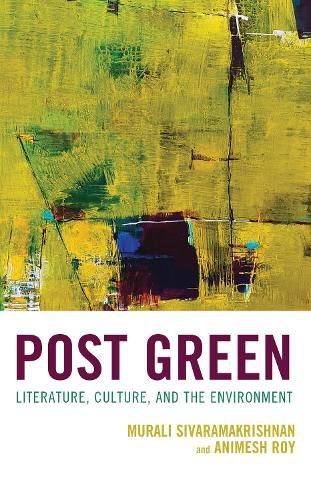Readings Newsletter
Become a Readings Member to make your shopping experience even easier.
Sign in or sign up for free!
You’re not far away from qualifying for FREE standard shipping within Australia
You’ve qualified for FREE standard shipping within Australia
The cart is loading…






The idea in Post Green: Literature, Culture, and Environment is not to create another binary like East/West, but rather a call for a shift in the order of perception. The contributors signal a movement from the conventional understanding of green thinking--acknowledging both the limitations of the green approaches as well as to explore new and holistic perspectives on environmental stewardship. This book proposes to move beyond the monoculture of the mind toward a celebration of diversity and plurality. While the movement from red to green was a politics of difference, as essays in this book emphasize, the shift toward post green is based on an all-inclusive and holistic vision that contains within itself both difference and multiplicity, something that is quintessential for the stability of our ecosystem. Such affirmative bio-politics toward an alternative symbiosis challenges intellectual theorising, without minimizing the need for radical questioning. It urges the need to do away with disciplinary boundaries drawing hopes for a new spiritual geography of the mind to surface.
$9.00 standard shipping within Australia
FREE standard shipping within Australia for orders over $100.00
Express & International shipping calculated at checkout
The idea in Post Green: Literature, Culture, and Environment is not to create another binary like East/West, but rather a call for a shift in the order of perception. The contributors signal a movement from the conventional understanding of green thinking--acknowledging both the limitations of the green approaches as well as to explore new and holistic perspectives on environmental stewardship. This book proposes to move beyond the monoculture of the mind toward a celebration of diversity and plurality. While the movement from red to green was a politics of difference, as essays in this book emphasize, the shift toward post green is based on an all-inclusive and holistic vision that contains within itself both difference and multiplicity, something that is quintessential for the stability of our ecosystem. Such affirmative bio-politics toward an alternative symbiosis challenges intellectual theorising, without minimizing the need for radical questioning. It urges the need to do away with disciplinary boundaries drawing hopes for a new spiritual geography of the mind to surface.